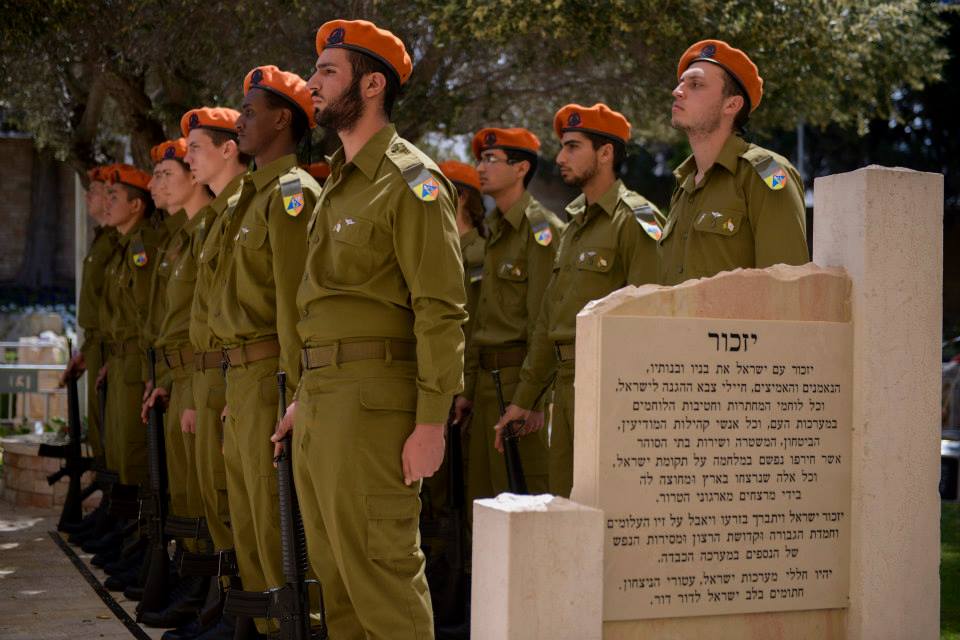On Wednesday morning, the citizens of Israel woke up, drank their morning coffee, put on white shirts, and glanced at the candles their mothers, wives, or they themselves lit the night before. Perhaps the picture of the young soldier or the innocent child delicately placed behind the candle drew a small tear from their eyes as they took a deep, reminiscing, sorrow-filled breath and left for school or work.
On their way, they remembered their fallen loved ones who died with the honor of defending our homeland and the innocent victims of terror who were murdered throughout our nation’s history. His smile, her laugh, and the way he played his favorite song on the guitar have been on their minds all week — and these faint memories accompany them once again during their commutes. Sad, mourning songs filled the buses and cars of the morning commute. At 11, at the cue of the siren, they stood for another two minutes of silence.
In a state whose pure existence exhibits so many contradictions and juxtapositions, it is extremely rare to find a day as unifying as this one. Yarden Danieli, a student of chemistry and education at Hebrew University, described Yom Ha’Zikaron in Israel as the day “where you can walk around and see individual pain inside everyone, and when we gather for ceremonies, it becomes everyone’s sorrow. It is one day without right or left, religious or secular, Ashkenazis or Sephardim — only Israel, in all her shades.”
Throughout the emotional ceremonies, Israelis paid their respects to those who have fallen for our country, stood in their inseparable group of white shirts, and sang “HaTikvah” for the last time that day. Then, the crowds dispersed, families returned home with their loved ones, and teens and young adults congregated and began discussing plans for the evening. Their evenings would be filled with celebrations, parties and concerts because their day of grieving, remembering, and honoring was coming to a close, and Wednesday’s sunset represented the beginning of Israel’s Independence Day. Yom Ha’Atzmaut is Israel’s biggest party of the year. Popular singers and bands offered free performances throughout Israel, streets were closed off, and parties lasted all night long.
For anybody unfamiliar with this phenomenon, it seems rather absurd that immediately following Israel’s Memorial Day, the country begins celebrating Israel’s independence. A day filled with grief, sorrow, tears, silence, heartbreaking melodies, and reminiscing of lost souls ends in happiness and festivities. Very often, the abrupt transition is explained by the phrase, “by their death, they bequeathed us life.” However, very rarely does that rid Israelis of their guilt for celebrating shortly after mourning such a heavy loss. Regarding the transition, David Ben-Gurion commented that the people of Israel have “only one drop of consolation: their lives and death weren’t for nothing — and as long as Am Yisrael is alive, Am Yisrael will carry their memory in their hearts forever.”
Following the moving Yom Ha’Zikaron ceremony at Hillel on Thursday evening, the audience members and speakers from the ceremony were filled with grief and confusion. How could children, some as young as us, be victims to this horrible and seemingly endless conflict? It seemed to all of us like an unfair rule of the game. After similar ceremonies, Israelis are somehow able to lift their heads towards a celebration of the lives of the fallen and a future where their children will not know how to aim a weapon or drive a tank. The night following Yom Ha’Zikaron is filled with festivities because the people of Israel, especially the fallen soldiers and victims of terror, deserve to be celebrated for their bravery, courage, and dedication to our one and only home.

